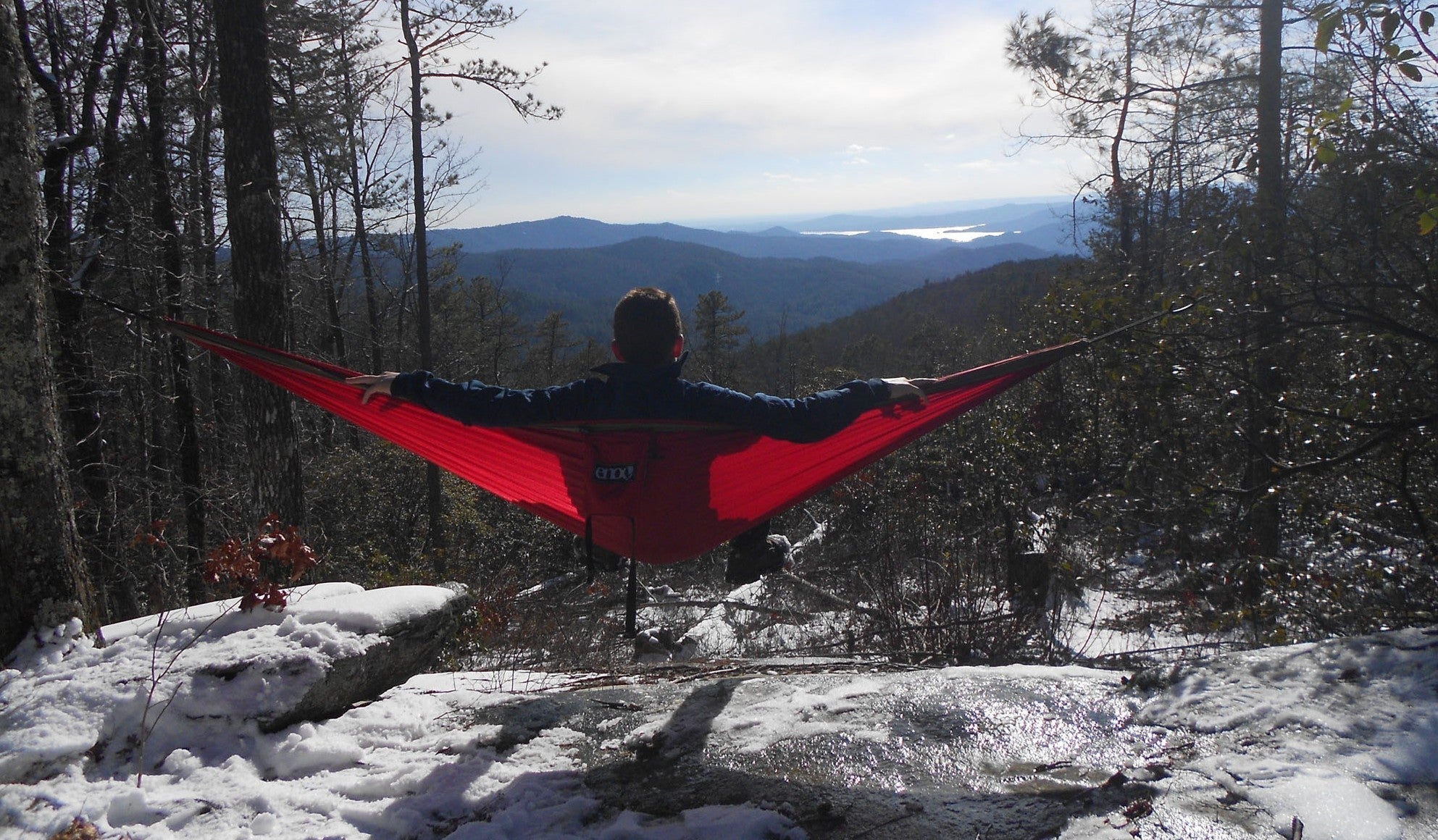Written by Katelyn Davis
Why ENO Thinks You Should Practice Outdoor Ethics
Close your eyes and picture your favorite nature spot. It might be the beach, a hiking trail, or a secluded area of the forest with a trickling stream.
Now image that same spot but this time it is littered with trash, all the flowers have been picked from the meadow as souvenirs, and there is graffiti on the sprawling cliffs. Not so nice, is it?
It is important to recognize that the planet’s natural wonders belong to everyone, so it is everyone’s responsibility to take care of them and ensure they last forever. To fulfill this duty, it is important to live by the “Leave No Trace” principles set up by the Leave No Trace: Center for Outdoor Ethics. These seven principles are designed to teach people of all ages how to enjoy the outdoors responsibly.
Plan Ahead and Prepare
When enjoying nature it is important to visit in small groups whenever possible to minimize the risk to the landscape around you. If are traveling in a large group, consider splitting up into smaller groups. Also, use a map and compass to find your way and to avoid using marking pain, rock cairns, or flagging as a way to mark your trail.
Travel and Camp on Durable Surfaces
Good campsites and trails are found, not made. While traveling, walk single file in the middle of the train to avoid erosion of the wildlife on the edge of the trail. When traveling and camping, utilize durable surfaces only, which include established trails and campsites, rock, gravel, dry grasses, or snow. Deviating from durable surfaces could mean you are harming the nature around you. To minimize your effects on the surrounding groundcover, try aerial camping by using a hammock.
Dispose of Waste Properly
Leave nothing but footprints when you move on to another site. Before leaving, inspect your campsite and rest areas for trash or spilled foods. Carry any trash with you for the duration of your trip and properly dispose of it at the nearest trash receptacle.
Leave What You Find
Take nothing but pictures. To preserve the past and the world’s natural wonders, look but do not touch. Leave rocks, plants, and other natural objects or historic features as you find them so they can be enjoyed for generations to come.
Minimize Campfire Impacts
Campfires can cause lasting impacts. Instead of creating a fire, use a lightweight stove for cooking and use a candle lantern for light. In areas where fires are permitted, use established fire rings/pans and keep the fires small and manageable. To avoid catastrophic forest fires, burn all wood and coals to ash then scatter the ashes to properly cool them before leaving the area. And always have ample water on hand for emergencies.
Respect Wildlife
It is best to observe wildlife from afar. For your safety and for theirs, do not follow or approach any wildlife. Also, do not feed wild animals as it can cause damaging effects to their health, alter their natural behaviors, and expose them to predators and other dangers. It is also important to store your food and trash securely when in nature to avoid luring animals into your camp.
Be Considerate of Other Visitors
Respect other nature enthusiasts and travelers by being courteous to their experience. Remember to share the trails, take breaks and cap away from trails and other travelers, and to stay quiet as to not disturb others and the wildlife around you.
Remember these important principles the next time you hit the trails and make sure everyone, for generations to come, can enjoy the same experience.
Author Bio:
By day Katelyn Davis is a social media marketing specialist living in Detroit and on the weekends, she is a wanderlusting adventurer. She is addicted “unplugging” and enjoying the great outdoors. And whenever she can, she likes to take her Siberian Husky along with her. You can find Katelyn enjoying nature and documenting every moment of it on Instagram. Her tools of the trade are her GoPro and iPhone and her key to relaxation is her ENO.





Share:
5 Must-See Places on the Blue Ridge Parkway
7 Must Visit Adventure Spots in Michigan